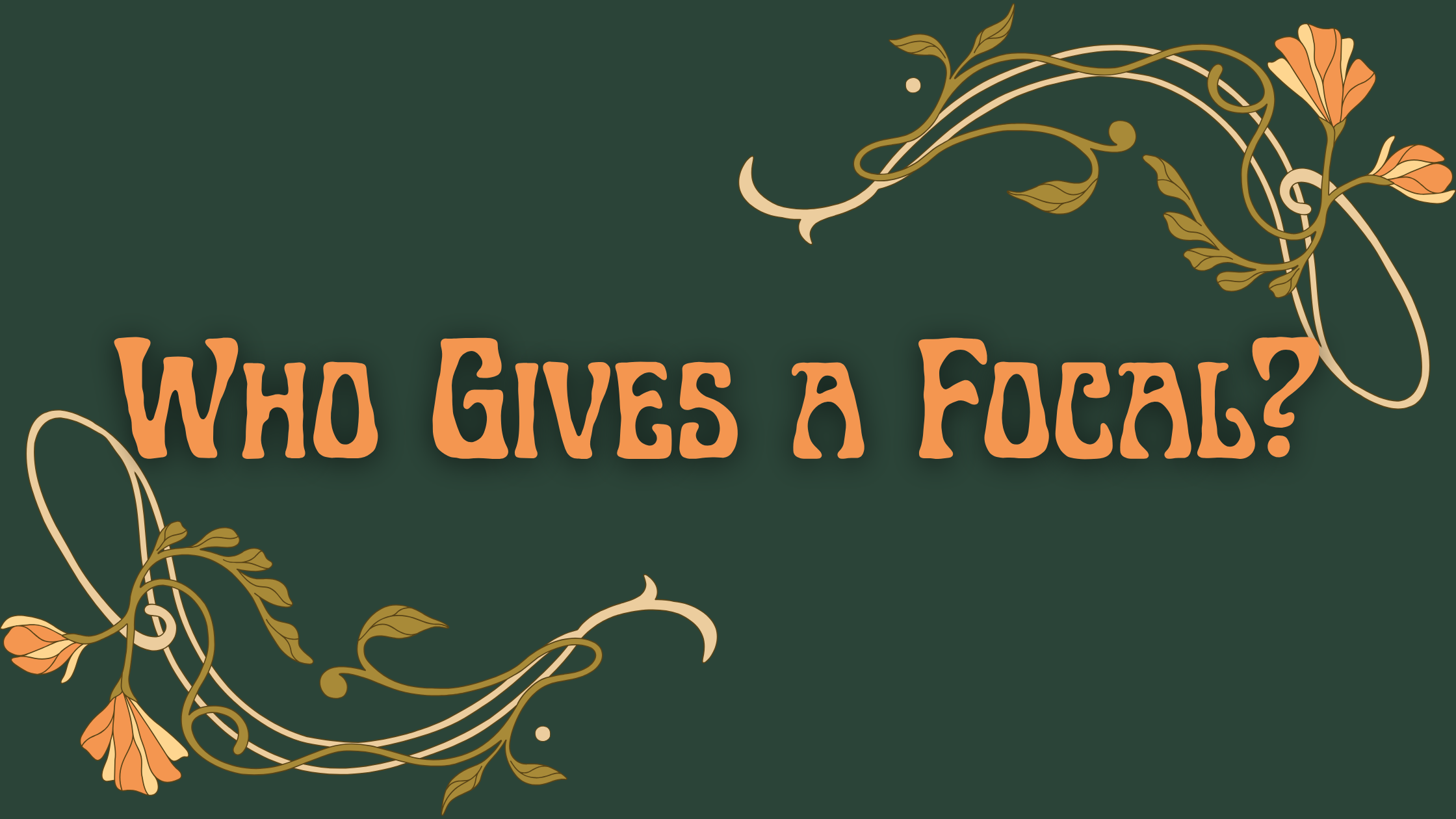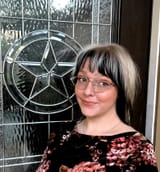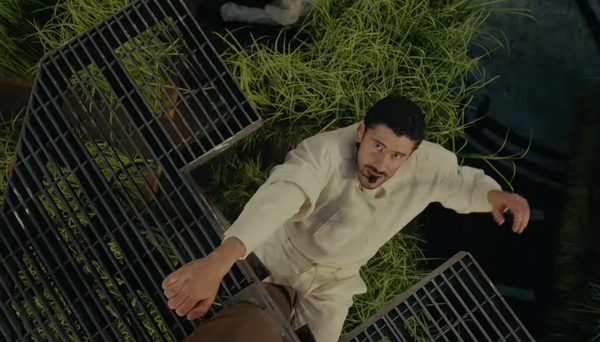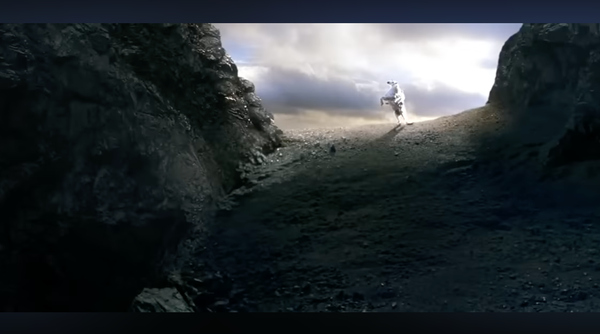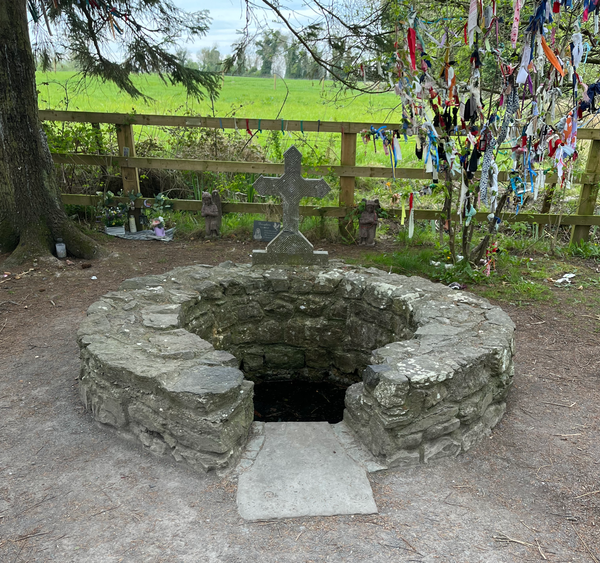I Read This When Things Fell Apart and You Should, Too
You don’t have to be an organizer or activist to read this book. It will have wisdom for you.
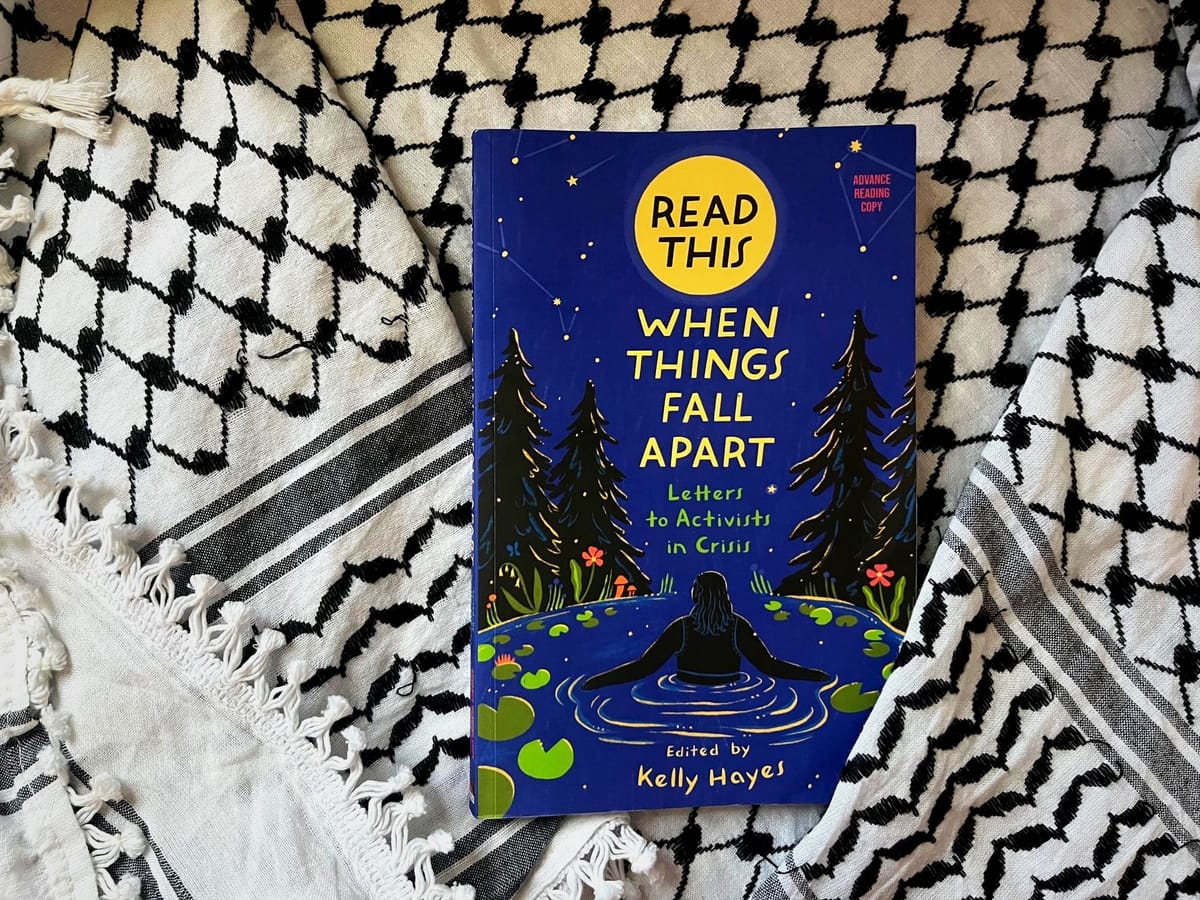
My job for 11 years was in movement journalism. I began in college when I needed a summer internship to stay on-campus in Brooklyn with my then boyfriend. Every morning from June 2015 to July 2025, I woke up, turned on my computer, and went to work curating, producing, and quality assuring every single part of a daily newsletter that covered everything from the climate crisis to abortion to racial justice, I could go on. I met organizers and writers from every intersection.
I think 2020 was when the work really changed for me. Despite always working virtually, the pandemic seemed to make an already stressful workplace into an even more complicated quagmire of interpersonal and professional entanglements that honestly, I’m still not quite sure we made it to the other side of. But still, it was work I was proud of, even when it burned me out to the point of breakdown numerous times.
So, when doing that work abruptly came to an end, I spent the first couple of weeks reading Read This When Things Fall Apart: Letters to Activists in Crisis edited by my colleague, organizer Kelly Hayes. (I really should call her “mentor” or movement guide or something to really capture who she is to me.) I was, and probably still am, in crisis as I navigate what my place is now that I don’t wake up and eat, sleep, inhale the news.
Every chapter is a directory with titles like “Read This If You’re Witnessing the Unthinkable,” “Read This If You Are Struggling with Your Mental Health.” And each is written by organizers from across the lefts like abolitionists Mariame Kaba and Maya Schenwar, or reproductive justice advocate Renee Bracey Sherman. Many of these writers do not know that I am the one that copyedited them many times in my tenure at my old job. Bracey Sherman’s teach-ins became the inspiration for the reproductive justice style guide I put together. That’s the thing about being a copyeditor—a role that because I took it when it was needed, became the one that sent me on the dusty trail—I know all of them, have admired them, yet they don’t know me. Dia daoibh! Hello to y’all!
A lot of these people were like heroes to me, paladins of the movement—freedom and justice for all! Even at 32 years old, I felt more like a kid admiring them from afar. I operated a lot like that within my job space as well, always deferring to someone else even if I knew better, never trusting my intuition. But this collection of letters is about how our movements are human. They are always growing, shrinking, and beautifully flawed just like us, the people that power and lead them.
This book has letters for everyone, and I found little nuggets of wisdom in each one. Even letters that I didn’t think would apply to me like “Read This If Someone You Loved Has Killed Themself or Wants to, and Maybe You Want to Too but You Also Want to Survive,” by disability justice advocate Leah Lakshmi Piepzna-Samarasinha struck me with the resonance of a clear bell. “I promised you I wouldn’t lie to you. I promised you I wouldn’t give you a fake little platitude,” Piepzna-Samarasinha writes, speaking about the messiness of the work, and how sometimes even fighting for us all to stay alive will not keep everyone alive. There were (and are) certainly people I wanted to help both at work and outside of it, and have found it is beyond my capacity. I watch them ask for it from people who do have it in their power to help, and they are offered Band-Aids instead of a tourniquet. Sometimes that’s all anyone knows to do.
“At some point in all of our movement journeys, we experience a fracture—a loss so severe, it feels like we’ve been cut open and something has been snatched from within us,” Kelly writes in the conclusion of the book. “I am … talking … about schisms, when people and entities we loved and for whom we sacrificed simply aren’t ours anymore.” I have lost many people, not just in the last few months, but over years. Some of these were my own doing, when I couldn’t manage conflict well enough that I had to set a pipe bomb to the whole thing. I think this loss has been the hardest of all because of how intwined it was in my day-to-day. My colleagues weren’t just work colleagues, they were cohorts in the movement, they were friends for better or worse.
While I was deep in the muck of this upheaval, so many people, including Kelly, rushed to help me whether it was listening to me vent all the things I had kept to myself or helping me navigate a career pivot. Some did not, and some even put their own relief that it wasn’t them onto me. I ended up soothing them, telling them I would be alright; that all the cards I’ve pulled, all the candles I’ve lit, the pendulums swung all point to me being okay. I believe that most days.
I also am a subscriber to Kelly’s newsletter Organizing My Thoughts, which lately has been on the ground reporting from Chicago as Immigration and Customs Enforcement (ICE) wreaks havoc on neighborhoods, pulling children from their beds and attacking protesters at the Broadview ICE facility. In reading about it, I keep grappling with what my new role in the work is going to be—I do not have reliable transportation, my family is immunocompromised, I have precious few resources as I look for work.
I have been filling my time with job applications, with writing, organizing my local library writers group, and tending to my folk practice. All of which, when compared to the work I used to do, feel like they aren’t moving the needle. I know this isn’t true. As someone who works with Brigid, fire is very integral to my entire practice, and since she is a saint/goddess of creativity as well as the forge and hearth, a lot of the last few months has been spent tending that fire. In “Read This if You’re Hurting and Want to Find Your People,” Black trans abortion doula Ash Williams assures me, “Keep nurturing the relationships you’ve been building over the past few years. Figure out where and with whom you feel poured into…. I think this is a generative starting place.”
On October 10, I joined what we call “The Toad Pond” in a discord about Slavic folk magic, run by Polish folk practitioner Joanna Tarnawska. I joined this discord to learn about what my ancestors may have practiced in Poland before war and constant partitioning landed them in the U.S. I hadn’t been able to attend the monthly zooms before, and this month’s subject was fire magic. We talked a lot about what our roles as “witches” are amid fascism and late-stage capitalism, and how fire in many magical practices is not only cleansing, but also about community. When you host a bonfire, almost always, the people with you will set about their roles tending to the fire even if no one has doled out any orders.
We talked about how maybe our roles aren’t so much about being able to hand someone a spell, but to offer ways of personal accountability and connection. Someone with a bunch of credit card debt doesn’t need a spell for abundance, they need us to guide them to material solutions, as one participant said. Maybe in helping them work through a problem, we help them understand the systemic roots of those problems, so that they can reclaim their power. We called this, “green-pilling,” our ways of speaking truth through our folk lens and across difference. Suffice it to say, I think I have begun to find my people.
Maybe this newsletter is a little like “Read This When You’re Scared to Death Your Life’s Purpose Is Gone and the Money Is Running Out and You Got Another Rejection Email and, and, and,” agus, agus, agus. My own little flame of creation and community, my own little act of green-pilling. A tilled plot of land ready to plant and make a garden.
So, the book is called, Read This When Things Fall Apart. I read it when things fell apart. It cradled me when I fell apart. It comes out November 4, 2025, and you can preorder it from AK Press here. You can also purchase a copy for an activist in need here. Preordering also helps a lot with generating store orders, which helps out those who make these books possible.
You don’t have to be an organizer or activist to read this book. You can be a parent, a teacher, a farmer, someone fighting Big Tech, or just someone who’s heartbroken by everything happening all at once. You can just be a witch whose life came tumbling down around them. Beidh eagna daoibh ag an leabhar seo. This book will have wisdom for you. May it hold you the way it held me.
Oracal ó Bhríd
Oracle from Brigid
Inclusivity—Healing Powers
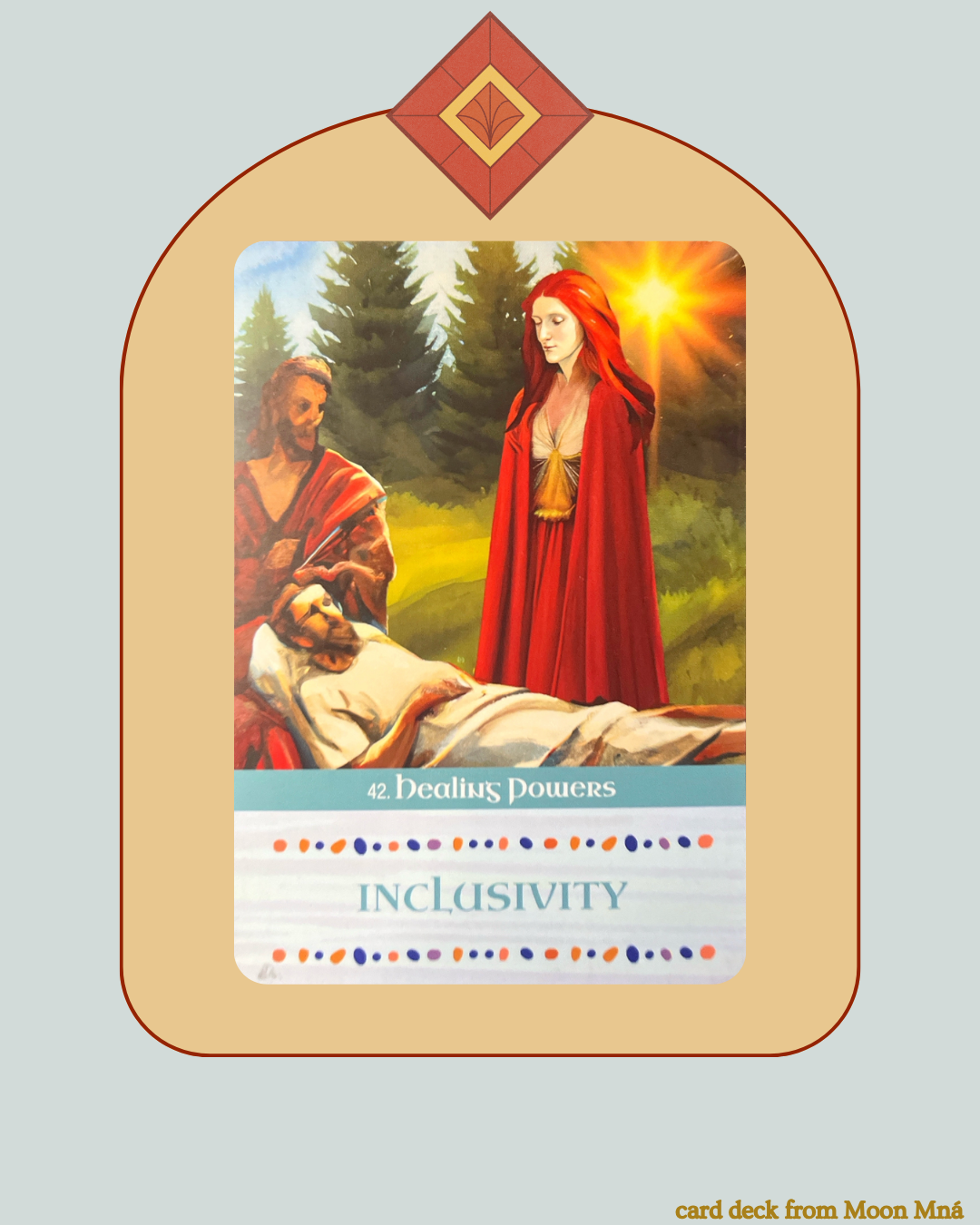
Professor of religious studies Ashon Crawley echoes Brigid's call for inclusivity and healing in "Read This if You are Heartbroken." He writes, "The illusion that some people are expendable and disposable needs to be confronted, then broken, so that we can finally get to the work of being kind and caring and joyful." Whether we are looking toward Brigid as saint, deity, or both, in all her aspects she was a healer. No one was ever turned away at her monastery, including those deemed outcast to society. She was often prone to giving away her father's (Dubhthach, a chieftain of Leinster) possessions as she saw the disparity between her father and her mother's lot as unjust. She gave shelter and food to the poor and sick.
I find it interesting that Brigid's monastery, founded at Kildare, is within walking distance of an outcast society of women known as the Wrens of the Curragh. Though these women were spat on and beaten (and worse) by not just British soldiers residing at the Curragh Camp, but also in the village, I often wonder what Brigid herself would have done for these women.
In these times, we must do as Brigid would do—help our neighbors, especially those who are targeted directly by far right powers. How can we show up better for our communities? We need only to look toward places like Portland and Chicago, where every day people are protecting their neighbors from ICE, to where flotillas sail to burst through a blockade, and in Italy where general strikes under a right-wing government do not go ignored.
But we needn't always go big or go home, sometimes being inclusive and charitable means answering the smallest call from anywhere for aid. Send a meal to a struggling neighbor, be a listening ear to someone who is frightened now, keep a little extra in your pantry to give to someone else in an emergency. Be the healing light you wish you had.
Did this oracle reading speak to you? Inis dom. Tell me below.
Fógra!
Announcement!
In case you missed the announcement on Instagram last week, new perks are coming for paid subscribers this month! As we continue shaping what this newsletter will be, I have decided that paid tiers (both the tabhartas and cairde Bríde tiers) will now receive a recipe straight from my hearth. So in addition to your weekly analysis, you can continue to glean some insight into my intuitive practices. These recipes will include my most potent simmer pots, the breads I experiment with for offerings, among many others. I hope you'll consider upping your subscription, or sending this newsletter toward your most woo-wooiest of friends! The first recipe will be sent fresh and piping hot to your inboxes on October 24 in time for Samhain.
Is there anything else you'd like to see? Leave a comment. Let's build this together!
Grá Mór,
Sam
Who Gives a Focal is a reader-supported publication, which cannot exist without readers like you. We are just getting started and would love for you to support us in our trial months today if you like what we do.
